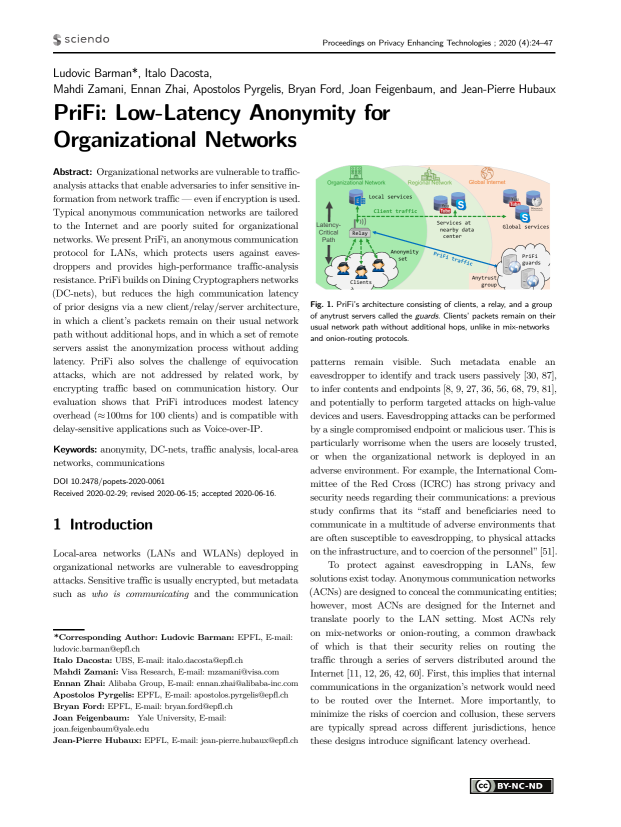PriFi: Low-Latency Anonymity for Organizational Networks
Authors: Ludovic Barman (EPFL), Italo Dacosta (UBS), Mahdi Zamani (Visa Research), Ennan Zhai (Alibaba Group), Apostolos Pyrgelis (EPFL), Bryan Ford (EPFL), Joan Feigenbaum (Yale University), Jean-Pierre Hubaux (EPFL)
Volume: 2020
Issue: 4
Pages: 24–47
DOI: https://doi.org/10.2478/popets-2020-0061
Abstract: Organizational networks are vulnerable to trafficanalysis attacks that enable adversaries to infer sensitive information from network traffic — even if encryption is used. Typical anonymous communication networks are tailored to the Internet and are poorly suited for organizational networks. We present PriFi, an anonymous communication protocol for LANs, which protects users against eavesdroppers and provides high-performance traffic-analysis resistance. PriFi builds on Dining Cryptographers networks (DC-nets), but reduces the high communication latency of prior designs via a new client/relay/server architecture, in which a client’s packets remain on their usual network path without additional hops, and in which a set of remote servers assist the anonymization process without adding latency. PriFi also solves the challenge of equivocation attacks, which are not addressed by related work, by encrypting traffic based on communication history. Our evaluation shows that PriFi introduces modest latency overhead (≈100ms for 100 clients) and is compatible with delay-sensitive applications such as Voice-over-IP.
Keywords: anonymity, DC-nets, traffic analysis, local-area networks, communications
Copyright in PoPETs articles are held by their authors. This article is published under a Creative Commons Attribution-NonCommercial-NoDerivs 3.0 license.


